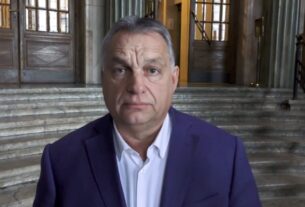At its March plenary session, the European Economic and Social Committee (EESC) hosted Ambassador Lachezara Stoeva, president of the United Nations Economic and Social Council (ECOSOC). Ambassador Stoeva strongly supported the key role civil society must play in implementing the 2030 Agenda.
“We have to be ambitious; global challenges require strong global answers”, said EESC president Christa Schweng, stressing that: “Civil society should have a seat at the table at this summit and later on at the Summit for the Future in 2024, with more structured and concrete involvement”.
The EESC has actively contributed to the first EU Voluntary Review, which, for the first time, will be presented by a supranational entity at the High-Level Political Forum in July. This event will pave the way for the Sustainable Development Goal Summit in September, a turning point for the evaluation and advancement of the 2030 Agenda.
Due to the current global crises, the achievement of the Sustainable Development Goals (SDGs) is under serious pressure. However, the SDG Summit in September this year is an important political opportunity to get them back on track.
From her side, UN Ambassador Lachezara Stoeva stressed: “We cannot do anything without civil society. As president of the ECOSOC, I am making every effort to ensure voices from civil society and stakeholders are heard, including young people and those most vulnerable”. She added: “European civil society has often played a leadership role in forward-looking thinking. The EESC, with its multi-stakeholder nature, including employers, workers and civil society, has the ability to contribute and make public policies more balanced, equitable and responsive”.
The EESC members welcomed the signal from the ECOSOC regarding stronger cooperation with the EESC, calling for active involvement of civil society across the world. The creation of an EESC platform working on the SDGs will strengthen the link between the two institutions, promoting structural engagement of civil society, youth organisations, businesses, and trade unions.
The EESC has been working for many years on the implementation of the SDGs, joining the High-Level Political Forum (HLPF) in order to feed the European perspective into the UN implementation process. In particular, for the upcoming HLPF the Committee has been producing a “model” contribution of civil society, which could be used as a best practice for other regions around the world.
Stefano Mallia, president of the Employers’ Group said: “It is in business’ DNA to find solutions for the world’s problems. That is why, we, as businesses, have a crucial role to play in achieving the SDGs”.
Oliver Röpke, president of the Workers’ Group stressed: “Civil Society has a key role to play in representing and raising awareness of all underrepresented voices. We need to make sure that it is included in the conversations and is part of policy-making, as it ensures the accountability of governments”.
Arnaud Schwartz, member of the Civil Society Organisations’ Group and president of the Sustainable Development Observatory said: “Empowering civil society organisations is key in order for the EU to implement the UN 2030 Agenda. Moreover, this will improve our chance for a peaceful, democratic and sustainable future”.
eesc.europa.eu


















